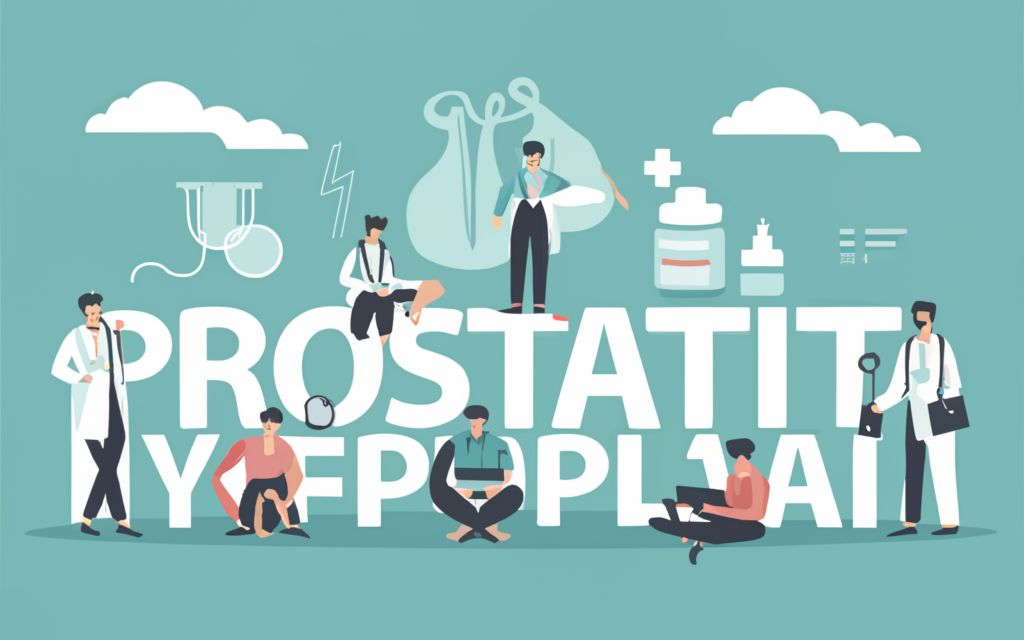Benign prostatic hyperplasia (BPH) is a common condition affecting the prostate gland in men, particularly as they age. Understanding the causes, symptoms, diagnosis, treatment options, and management strategies for BPH is crucial for improving quality of life and managing symptoms effectively.
Benign prostatic hyperplasia (BPH) refers to the non-cancerous enlargement of the prostate gland, which surrounds the urethra and plays a role in the male reproductive system. As men age, changes in hormone levels and cellular growth patterns can lead to an increase in prostate size, resulting in BPH.
Benign prostatic hyperplasia (BPH), also called enlarged prostate, is a common condition affecting men as they age. While non-cancerous, it can cause bothersome urinary symptoms. Let’s delve into the causes, diagnosis, and management options for BPH.
What is the cause of BPH?
The exact cause of BPH is not fully understood, but age-related changes, hormonal factors (such as testosterone and dihydrotestosterone), and genetics are believed to play significant roles. Family history and certain lifestyle factors may also increase the risk of developing BPH.
The exact cause of BPH remains unclear, but several factors likely play a role:
- Age: The risk of BPH increases significantly after 50, affecting over half of men by age 70.
- Hormones: Changes in testosterone and estrogen levels as men age may contribute to prostate growth.
- Genetics: Having a family history of BPH increases your risk.
- Lifestyle: While not definitively proven, some studies suggest obesity and lack of exercise might be linked to BPH.
What is the best treatment for BPH?
Treatment options for BPH may include lifestyle modifications (such as diet and exercise), medications (such as alpha-blockers and 5-alpha reductase inhibitors), minimally invasive procedures (such as transurethral microwave thermotherapy), and surgical interventions (such as transurethral resection of the prostate).
There is no single “best” treatment for BPH, as the optimal approach depends on individual factors like symptom severity, overall health, and personal preferences. Common options include:
- Watchful waiting: For mild symptoms that don’t significantly impact quality of life, monitoring symptoms and regular checkups might be sufficient.
- Medication: Medications like alpha-blockers relax the prostate muscles, improving urine flow. Other drugs like 5-alpha-reductase inhibitors shrink the prostate over time.
- Minimally invasive procedures: These procedures use various techniques to unblock the urethra without major surgery, suitable for moderate symptoms. Examples include microwave therapy, laser ablation, and transurethral needle ablation (TUNA).
- Surgery: Surgical options like transurethral resection of the prostate (TURP) or robotic-assisted laparoscopic prostatectomy (RALP) are considered for severe symptoms or complications.
How do you manage BPH symptoms?

Common symptoms of BPH include urinary difficulties such as frequency, urgency, weak urine stream, hesitancy, incomplete bladder emptying, and nocturia (frequent urination at night). Hematuria (blood in urine) and urinary retention may also occur in severe cases of BPH.
Even if you’re not actively seeking treatment, managing BPH symptoms can improve comfort and quality of life:
- Lifestyle changes: Maintaining a healthy weight, exercising regularly, and reducing caffeine and alcohol intake can help.
- Bladder training: Techniques like pelvic floor exercises and scheduled urination can improve bladder control.
- Dietary adjustments: Limiting bladder irritants like spicy foods and citrus fruits might ease symptoms.
Management of BPH Symptoms
Behavioral strategies such as timed voiding and bladder training, as well as pelvic floor exercises, may help manage urinary symptoms associated with BPH. Additionally, maintaining a healthy lifestyle and seeking support from healthcare professionals can improve symptom management and overall well-being.
How do you diagnose BPH?
Diagnosis of BPH involves a thorough medical history review, physical examination (including digital rectal examination), prostate-specific antigen (PSA) blood test, urinalysis, and imaging studies (such as ultrasound or cystoscopy) to evaluate the size and condition of the prostate gland.
Diagnosing BPH typically involves:
- Medical history and symptom evaluation: Your doctor will discuss your symptoms, medical history, and family history.
- Physical exam: A digital rectal exam can assess prostate size and consistency.
- Urinalysis and urine flow test: These tests check for infections and measure urine flow rate.
- Blood tests: PSA levels might be checked to rule out prostate cancer.
- Prostate ultrasound: This imaging test provides a detailed view of the prostate.
Impact of BPH on Quality of Life
BPH can significantly impact quality of life by interfering with daily activities, causing discomfort, and affecting emotional well-being. Symptoms such as urinary urgency and frequency can disrupt sleep patterns and social interactions, leading to increased stress and anxiety.
Complications of Untreated BPH
Untreated BPH can lead to complications such as acute urinary retention, urinary tract infections (UTIs), bladder stones, and chronic kidney disease. Early diagnosis and appropriate treatment can help prevent these complications and improve long-term outcomes.
Living with BPH: Coping Strategies and Support
Living with BPH may require adjustments to daily routines and self-care practices. Education, awareness, and support from healthcare providers and support groups can help individuals cope with the challenges of managing BPH and improve quality of life.
FAQs About BPH
Here are some frequently asked questions about BPH:
| FAQ | Answer |
|---|---|
| What causes BPH? | Age-related changes, hormonal factors, genetics, and lifestyle factors may contribute to BPH. |
| What are the symptoms of BPH? | Symptoms of BPH include urinary difficulties such as frequency, urgency, and weak stream. |
| How is BPH diagnosed? | Diagnosis involves medical history, physical examination, PSA test, urinalysis, and imaging. |
| What are the treatment options for BPH? | Treatment options include lifestyle modifications, medications, minimally invasive procedures, and surgery. |
| Can BPH lead to prostate cancer? | BPH does not increase the risk of prostate cancer, but the two conditions can coexist. |
| Is BPH a normal part of aging? | Yes, BPH is common in older men and considered a normal part of the aging process. |
| Can diet and exercise help manage BPH? | Healthy lifestyle habits such as diet and exercise may help manage BPH symptoms. |
| Are there alternative therapies for BPH? | Alternative therapies such as herbal supplements and acupuncture may be considered, but their efficacy varies. |
| What are the risks of BPH surgery? | Risks of BPH surgery include bleeding, infection, urinary incontinence, and erectile dysfunction. |
| Can BPH affect sexual function? | BPH may affect sexual function by causing erectile dysfunction or ejaculatory problems. |
Understanding BPH and its management strategies is essential for individuals affected by this condition. Seeking early diagnosis and appropriate treatment can help alleviate symptoms and improve overall quality of life.
-

For about 5 years now, I have been on my journey towards a healthier lifestyle. My main goal? To feel great both on the inside and outside! Since then, I've been all about exploring different ways to boost my overall well-being, with a special emphasis on keeping my mind as healthy as my body. Finding balance has become my mantra, and let me tell you, it's been a game-changer! Whether I'm sweating it out with some cardio, hitting the trails for a rejuvenating hike, diving into deep conversations, or simply enjoying the company of my furry companion - mini Schnauzer Yuki, life just feels so much better! Drop me a line anytime – I'm always here for a friendly chat about health and happiness!




